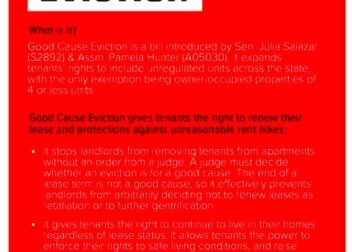Key Points of Arkansas Real Estate Laws
A framework governing transactions involving property in Arkansas is provided by real estate laws that encompass sales, leases and zoning among others. It is important for buyers, sellers landlords and tenants to know these laws. All parties must be aware of their rights and obligations to facilitate transactions and prevent legal conflicts.
The practices of Real Estate in Arkansas are governed by some rules and regulations. Here are some important points to note:
- Property Ownership: Arkansas recognizes different forms of property ownership, including sole ownership, joint tenancy, and tenancy in common.
- Land Use Regulations: Local zoning laws dictate how properties can be used, whether for residential, commercial, or agricultural purposes.
- Disclosure Obligations: Sellers must disclose known defects or issues with the property to potential buyers.
- Foreclosure Processes: The state has specific laws governing how foreclosures are conducted, protecting the rights of homeowners.
Importance of Written Agreements in Real Estate Transactions

In the case of real estate deals happening in Arkansas it is compulsory to have written agreements. Misunderstanding and legal ambiguities may arise from verbal contracts hence making written ones necessary for clarity as well as security.
Here I am providing you with some reasons why written agreements are paramount:
- Legal Protection: A written contract serves as legal evidence of the agreed terms, which can be referenced in case of disputes.
- Clear Terms: Written agreements allow parties to specify their rights and responsibilities, reducing ambiguity.
- Compliance with Laws: Many real estate transactions are legally required to be documented in writing under Arkansas law.
In Arkansas, you’ll find that the most common types of written agreements are purchase agreements, lease agreements, and disclosure forms, which are customized for various transactions.
Key Regulations for Real Estate Agents in Arkansas

In Arkansas, estate agents are incredibly important in the processing of property transactions, but must abide certain rules and regulations to do so legally and ethically. These guidelines keep clients safe and ensure that the real estate industry is not undermined by illegal practices.
In conclusion, here are few regulations to take note of:
- Licensing Requirements: All real estate agents must be licensed by the Arkansas Real Estate Commission (AREC) to practice legally.
- Continuing Education: Agents are required to complete ongoing education to stay updated on industry changes and legal requirements.
- Code of Ethics: Agents must follow a code of ethics that promotes honesty, integrity, and transparency in all transactions.
- Disclosure Duties: Agents have a responsibility to disclose any known issues with a property and to act in the best interest of their clients.
By following these laws, agents who deal with real estate contribute in building confidence and respectability in the Arkansas real estate trade.
Property Disclosure Requirements in Arkansas
Property disclosure requirements are very important in real estate transactions in Arkansas. This law ensures that buyers have enough information about the property before purchasing it. It can assist the potential buyers to avoid nasty surprises later on by knowing what must be made known by sellers.
For all those interested in knowing about the property disclosure requirements in Arkansas here are some vital points:
- Mandatory Disclosures: Sellers are required to disclose any known defects in the property. This includes structural issues, plumbing or electrical problems, and any history of pest infestations.
- Disclosure Form: Arkansas has a standard property disclosure form that sellers must complete, detailing the condition of various aspects of the property.
- Lead-Based Paint Disclosure: For homes built before 1978, sellers must provide information regarding lead-based paint hazards.
- Failure to Disclose: If a seller knowingly fails to disclose significant issues, they may be held liable for damages post-sale.
Buyers and sellers of property can better manage their real estate transactions through an understanding of these requirements since it encourages trust and promotes openness in the dealings.
Tenant Rights and Responsibilities Under Arkansas Law
In Arkansas, the rights that tenants enjoy plus their duties during rental period are fundamentally important. If you understand what your rights entail as a tenant, self advocacy becomes easier; on the other hand, it enhances better relations with the landlord as knowing your responsibilities are very critical to it.
Arkansas has a number of key rights that tenants should be aware of.
- Right to Habitability: Tenants have the right to live in a property that is safe and meets basic health standards.
- Right to Privacy: Landlords must provide proper notice before entering a rental property, except in emergencies.
- Right to Non-Discrimination: Tenants are protected from discrimination based on race, gender, religion, or familial status.
Nevertheless, the renters have obligations as well, including:
- Paying Rent on Time: Tenants must ensure their rent is paid by the due date to avoid eviction.
- Maintaining the Property: Tenants are responsible for keeping the rental unit clean and reporting any issues to the landlord.
- Following Lease Terms: Tenants must adhere to the terms outlined in the lease agreement, including rules about pets and noise.
Tenants can establish a better living space and reduce possible misunderstandings with their landlords through the awareness of their duties as well as privileges.
Landlord Obligations According to Arkansas Regulations
The landlords have certain responsibilities in Arkansas which make their tenants’ houses safe and livable. It is necessary for both the landlords and the tenants understand these responsibilities so as to have a good renting experience.
Just as forces govern the heavens and earth, laws infringe on properties owned by landlords. However, Arkansan law stipulates several responsibilities for landlords; the most imperative ones include:
- Providing a Habitable Environment: Landlords must ensure that the rental property meets health and safety codes, including proper plumbing, heating, and electrical systems.
- Maintenance Responsibilities: Landlords are responsible for repairing any issues that affect the tenant’s enjoyment of the property, such as fixing leaks or broken appliances.
- Respecting Tenant Privacy: Landlords must give tenants proper notice before entering the rental property, except in emergencies.
- Return of Security Deposits: Landlords are required to return security deposits within a specific timeframe after a tenant moves out, minus any deductions for damages beyond normal wear and tear.
In order to get good relationships with tenants, decrease turnover rates and maintain a successful rental business, landlords should understand and perform these obligations.
Understanding the Process of Foreclosure in Arkansas
Arkansas homeowners often consider foreclosure a scary occurrence filled with anxiety and unpredictability. It is essential to learn about how foreclosure happens legally, the various stages involved, and what rights individuals can claim as homeowners. Generally, there are certain laws which determine how this process usually goes on in Arkansas.
The primary phases of foreclosure in Arkansas are as follows:
- Default Notice: When a homeowner misses mortgage payments, the lender will issue a notice of default. This notice typically comes after 30 days of missed payments.
- Foreclosure Lawsuit: If payments are not made, the lender can file a foreclosure lawsuit in court. The homeowner will receive a summons to respond to the lawsuit.
- Court Hearing: A court hearing will be scheduled where both parties can present their case. If the court rules in favor of the lender, a foreclosure sale will be scheduled.
- Foreclosure Sale: The property is then sold at a public auction, usually to the highest bidder. If no one bids, the lender may take possession of the property.
- Redemption Period: Arkansas law provides a redemption period, allowing homeowners to reclaim their property by paying the full amount owed within a specified timeframe.
By comprehending these actions, homeowners can take initiative and analyze their alternatives in relation to losing possession of their properties.
Frequently Asked Questions About Arkansas Real Estate Laws
Within this world characterized by housing and properties, questions must arise inevitably as you move through Arkansas’ real estate sector. Some commonly asked questions that could provide more clarity concerning major facets about laws governing Arkansas’ properties are as follows.
- What is required for a valid lease agreement? A lease agreement must be in writing if it’s longer than one year and include the names of the parties, property details, and rental terms.
- Are there rent control laws in Arkansas? No, Arkansas does not have statewide rent control laws, so landlords can set their rental prices.
- How long does a landlord have to return a security deposit? Landlords must return the security deposit within 60 days after a tenant moves out, deducting any legitimate expenses.
- What are the disclosure obligations for sellers? Sellers must disclose any known defects and complete a property disclosure form before selling their home.
Such queries merely touch on numerous intricacies of the Arkansas property regulation system; anyhow, it remains prudent to consult with a legal expert for particular cases.
Conclusion on Key Points of Arkansas Real Estate Laws
Whether you’re a potential buyer, seller, renter or even tenant of a house located in Arkansas it is essential for one to fully comprehend the real estate laws. These include various aspects like property disclosure requirements, tenant’s rights, landlord duties and foreclosure processes that will help you as a person involved in transactions of houses to go about them comfortably.
Below are my concluding remarks:
- Always have written agreements to protect your interests.
- Know your rights and responsibilities to foster positive relationships.
- Stay informed about the laws to make better decisions.
Real estate can be complex, but with the right knowledge and support, you can successfully navigate your transactions while minimizing legal risks. Whether you’re making a purchase, renting a home, or facing foreclosure, understanding these laws can empower you to take control of your real estate journey.


